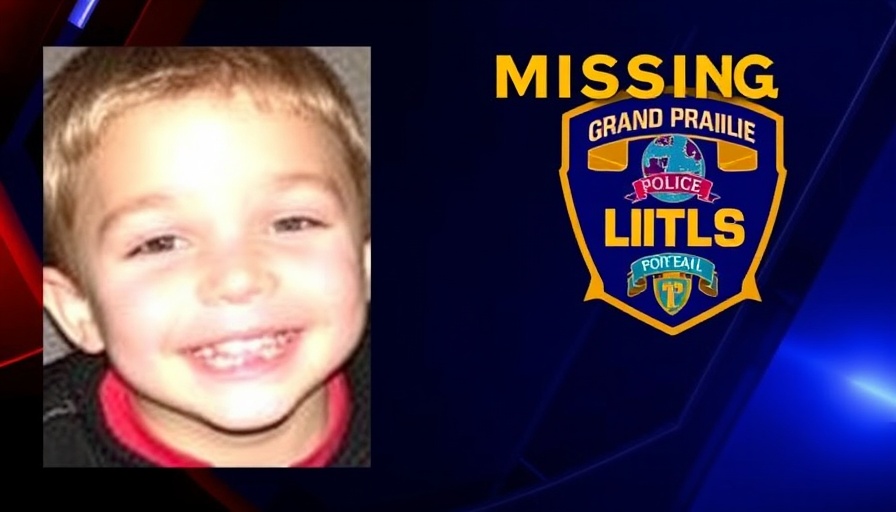
Tragic Loss: The Story of a Missing Child
The community of Grand Prairie, Texas, is grappling with the heartbreaking news of a 5-year-old boy, Santiago Aburto Gonzalez, whose body was discovered in a creek near his apartment complex. Santiago, who had autism, went missing on Sunday evening after walking out of his apartment at Ashton Park, leading to a frantic search over the subsequent hours. His mother reported his disappearance around 7 p.m., a call that would bring local authorities to the scene in a desperate attempt to locate the child.
Developments in the Investigation
On Monday afternoon, after a grueling search operation that included dive teams, authorities were able to locate Santiago's body roughly four feet below the surface of the murky water. The search area was about 50 yards from where he was last seen, highlighting the tragic circumstances surrounding his disappearance. The Grand Prairie Police Department has stated that while the case remains under investigation, there is no suspicion of foul play involved in this tragic incident.
Community Response and Support
The heartbreaking loss of Santiago has sent shockwaves through the local community. Neighbors expressed deep sorrow and outrage, coming together to support the grieving family. The police department has offered its condolences and vowed ongoing support to Santiago's family during this difficult time. In the face of tragedy, communities often rally to provide solace and aid to those impacted, as seen in many similar situations across the country.
Understanding Autism and Vulnerabilities
Santiago's story serves as a tragic reminder of the unique risks faced by children with autism. Many families grappling with similar circumstances often discuss the heightened challenges that come with wandering behaviors. Children on the autism spectrum may not recognize danger or know how to return home, making awareness and vigilance from caregivers essential. It’s crucial for the community to develop strategies to better protect children with autism, ensuring safer environments and improved understanding among the general public.
Actionable Insights: Creating Safer Spaces
The tragedy surrounding Santiago’s passing opens a vital dialogue concerning safety measures that can be instilled in residential communities. Simple yet effective actions can be taken—neighborhood watch programs, community awareness campaigns on child safety, especially for vulnerable groups, and the installation of security systems can significantly contribute to ensuring children's safety. Local businesses in Dallas, TX, can partner with community organizations to provide workshops that educate parents and caregivers about the necessary precautions to take with children, particularly those with disabilities.
Moving Forward: The Role of Community in Safety
This ordeal isn't just a story of tragedy; it is also a call to action for communities to unite in the face of loss. Grand Prairie, much like the wider Dallas-Fort Worth area, has the potential to enact policies and programs that can prevent tragedies like this from occurring again. The efforts of local news stations and community organizations can be amplified to spread awareness and encourage proactive measures to protect vulnerable populations.
Reflections: Grieving and Healing Together
For the residents of Grand Prairie and neighboring communities, the grief of losing a child is profound. Vigil events in memory of lost children take place nationwide, and the musical echoes of shared sorrow aid communities in healing together. Merely remembering Santiago’s story allows the community to reflect on the importance of every child's life, and the role that vigilance and care play in keeping children safe.
Final Thoughts: Taking Action for the Future
As we remember Santiago Aburto Gonzalez, we must turn our sorrow into action. Engage with local initiatives aimed at improving child safety and educating the public about autism. The loss of such a young life can foster meaningful change—change that can manifest in neighborhood safety, more informed communities, and ultimately, a more connected society. It is our collective responsibility to ensure that every child has the safeguarding they deserve.
 Add Element
Add Element  Add Row
Add Row 



 Add Row
Add Row  Add
Add 


Write A Comment